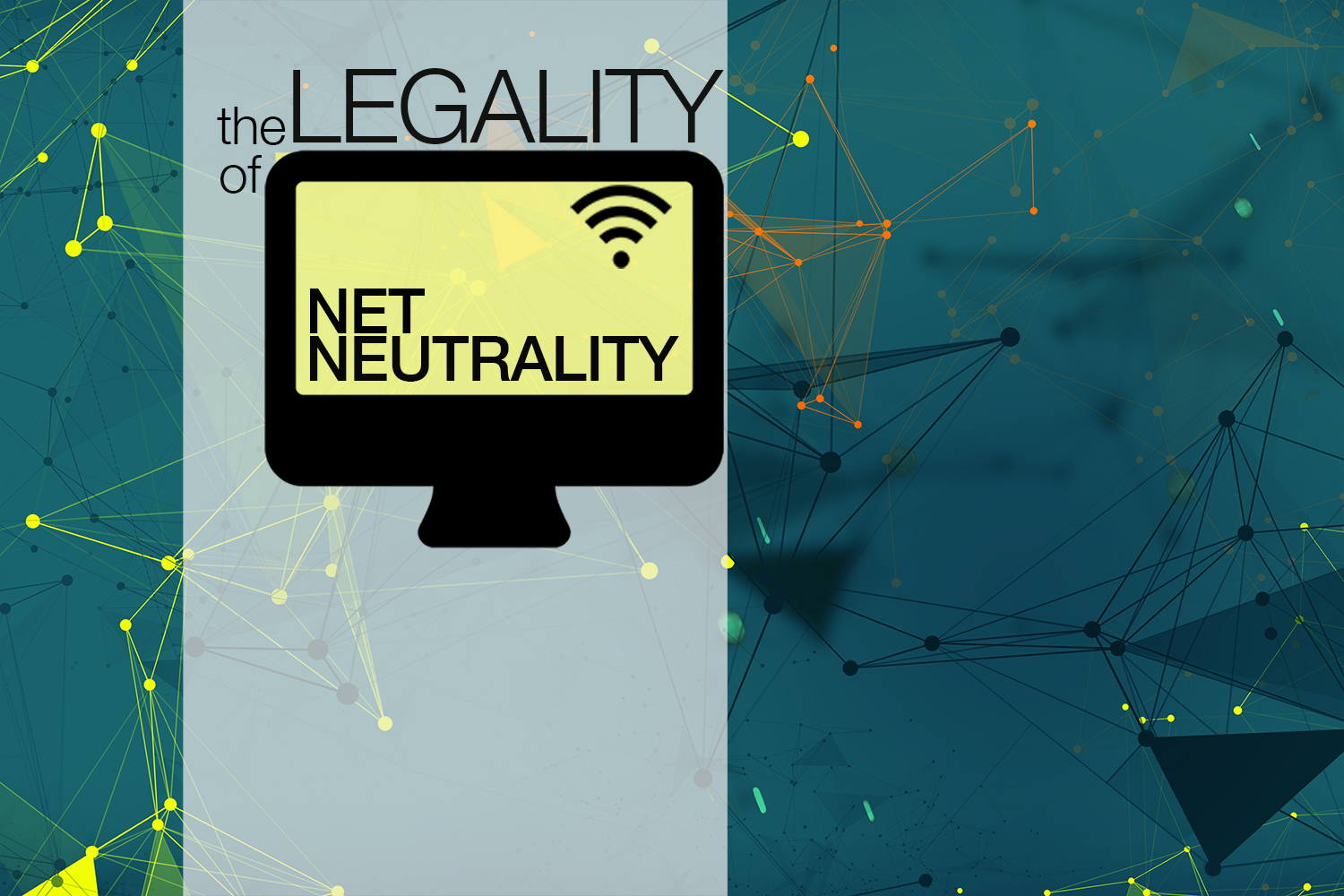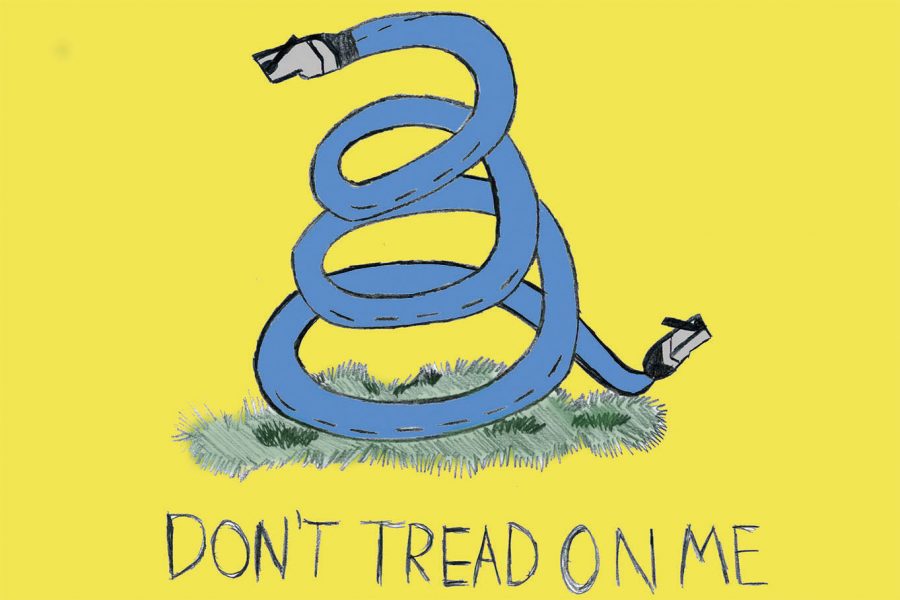The legality of Net Neutrality
December 13, 2017
There is no doubt that the internet wholly revolutionized life during the 21st century. The assets of the future are truly at the tip of our fingers: a mere click from the truth, a quick swipe to uncover happiness, a minute touch to unlock an intangible world. This eclectic, encompassing system has infiltrated our lives to the core of humanity, restructuring the foundations of work, entertainment, communication and even the unique avenues in which we are shaped as individuals. An institution of almost 40 years of innovation and evolution, the internet has experienced many battles garnered around accessibility, and a multitude of fights centered around control. Once again, the internet will face an obstacle tomorrow, when the Federal Communication Commission votes on whether or not to repeal the Open Internet Order.
FCC to vote on internet regulations Thursday
Chairman Ajit Pai seeks to repeal Net Neutrality regulations
He sits at the desk, a picture of comfort and ease. He scrolls through his Reddit feed, eyes glazing over from the lack of interesting content. There is a streaming podcast in the background, a song playing from Youtube on the monitor, and every so often, a text message will sound through. Although, when a red image with white bold letters slides past the homepage of Reddit, he stops. He scrolls back. He reads. The post reads: “URGENT. If you’re not freaking out about Net Neutrality, you’re not paying attention.”
On Nov. 21, the Federal Communications Commission’s chairman, Ajit Pai, announced a plan that would rollback democratic rulings during Obama’s presidency regarding internet regulations. In early 2015, the former F.C.C. chairman, Tom Wheeler, worked to prevent the internet from becoming overrun with business interests, and to instead remain a free and open public utility. In classifying broadband internet as a public utility, it resulted in pushing the in pushing the internet into the realms of federal management.
This order from Wheeler extended the internet’s Net Neutrality in the US, which is the assertion that cyberspace should not be hindered or controlled by powerful corporations, and therefore should remain an accessible and unbarred service.
However, shortly afterward these orders, internet service providers like Verizon and ComCast challenged this order in court, but it withstood. The ruling prevented ISP’s from throttling internet speed and simultaneously charging prices for different benefits.
When Pai was appointed as the chairman in early 2017, he called the Net Neutrality rules “heavy-handed” and “unnecessary.” He doesn’t discern the government’s involvement as a necessity, and rather emphasizes that Net Neutrality is another facet of consumerism that is being micromanaged.
Since that proposal from the FCC, internet users across the country have taken to calling congress over a thousand times a day, sending emails, writing letters and flooding the market with posts. Reddit and Twitter have been the most prominent proponents of Net Neutrality, and are working to elevate the voices of their users to lawmakers in congress.
In an interview with former FCC Chairman Tom Wheeler, hosted by Corning-Painted Post High School in New York, he relates that the choices regarding the open internet should be made by the public. He also expresses that the ISP’s are at the peak of economic success, and questions why the previous rules would be stripped.
“The sad thing now is that the Trump FCC is ignoring the outpouring of comments, about 98 percent of people said ‘Don’t take the open internet away,’ and they’re being ignored,” Wheeler said. “Since the adoption of the open internet rule, there has not been a decline in investment. The companies, that are required by law to tell their investors, whether there are any adverse effects of policies like this, have not told them that there has been any risk. Their stocks are at an all time high.”
In simple terms, Wheeler explains why having an accessible internet is crucial to the American population.
“‘Is there going to be open access between all the students, anybody on the internet, and any service provider?’ We have seen instances over time where those who control the network are monopolies for the most part, and two-thirds of homes in America have at most, one choice as to where they would get their high speed internet,” Wheeler said. “If you don’t have any choice, the monopoly makes the rules and [they have] the economic incentive to maximize their position as a gatekeeper, and they have the technological capability to pull that off.. [this] should not be abused. The internet is the most important network in the 21st century. The rules for that network, should be made by the people, rather than the networks themselves.”
Many are fearful that given new guidelines under the FCC, ISP’s will be able to block online content, manipulate internet traffic and basically perform behind-the-scenes censorship of consumer material.
“This whole thing started in 2007 when ComCast blocked BitTorrent from delivering licensed, copyrighted product over the internet because it competed with Comcast paid TV service. The Republican FCC said no, you can’t do that, passed a rule, and ComCast took them to court and the court said ‘No, you can’t do that, unless ComCast is a common carrier,'” Wheeler said. “When the 2010 rules were being argued in court, the attorney for Verizon stood before the three judge panel and said, ‘I have been authorized by my client to say we are appealing this because we intend to prioritize service, we intend to have fast lanes and slow lanes and this won’t let us do that.’ They used to say we will not prioritize. That’s gone from their list of promises.”
Inadvertent censorship is already manifesting through social media.
“Net neutrality hasn’t prevented any censorship from happening. Facebook has been accused of pushing more liberal topics during the election process. Other social media outlets were also rumored to have done this,” computer science teacher Mark Ahrens said. “There will always be some censorship of ideas due to biases being present. Net Neutrality was already in place and it did nothing to stop this. ”
The FCC has in place Bright Line rules meant to safeguard consumers from discrimination against internet traffic.
“Since the adoption of the open internet rule, there has not been a decline in investment. The companies, that are required by law to tell their investors, whether there are any adverse effects of policies like this, have not told them that there has been any risk. Their stocks are at an all time high.
— Tom Wheeler
“Internet access is an essential vector of the century, in 2000 about 50 percent of Americans use the internet, and today it’s about 95 percent. There are basically four companies that control your access to the internet, ComCast, Charter, AT&T, and Verizon,” Wheeler said. “[ISP’s] have to be open. No blocking, no throttling, no paid prioritization. What’s burdensome about that? It’s a simple rule that says you will not abuse your position as the provider of an essential service. I don’t think there’s a difference between a big company or a small company; you should not abuse your position. There are no reports that are required. Just a set of rules saying you must act responsible.”
Current chairman Ajit Pai wants to hand over internet regulations to the Federal Trade Commission, instead of managing the networks through overarching measures.
“When I was chairman, [Ajit Pai] was a commissioner, and he opposed everything we did in this regard. Now he’s got an opportunity where he can do something about it. The thing that is sad, is that he’s not just repealing our rules, he is just totally walking away from any responsibliity. From 1934, when the Communications Act was first written, until today, the FCC has been over America’s first wired, then wireless networks. And he’s saying ‘We have no responsibility, we’re going to walk away, if anything happens, the Federal Trade Commission can worry about it,” Wheeler said. “But the FTC is not the expert agency. They have to worry about everything from pharmaceuticals to bleach labeling. The FTC doesn’t have regulatory authority to say here are the kind of rules that people should operate by, they have a judicatory authority to say ‘Oh you shouldn’t have done that, we’re going to fine you.’ So the FTC can’t do anything until the barn has burned down, and by then the damage is done. There needs to be a few basic rules. I understand entirely why the monopolies don’t want those rules. If I was a monopoly, I wouldn’t want those rules either. But the fact of the matter is, that’s not what’s best for the economy, that’s not what’s best for consumers, competition, innovation.”
Wheeler relates that if the vote is passed tomorrow, there will be lawsuits prepared to take action.
We do not and will not block, throttle, or discriminate against lawful content. We will continue to make sure that our policies are clear and transparent for consumers, and we will not change our commitment to these principles. pic.twitter.com/19PFCPJ3TY
— Comcast (@comcast) November 22, 2017
“Every major action by the FCC is ultimately reviewed by the Court of Appeals, I’m sure there will be a repeal on this decision, and that appeal comes down to the question, has the agency made a decision based upon the facts in their record, rather than being arbitrary and capricious,” Wheeler said. “The record that exists today does not support that things have changed so much in two years that we ought to walk away from the responsibility that has existed in this agency since 1934. It’s not over until the black robed folks sing.”
Regarding privacy, the FCC has put in place certain statutes that prevent networks from digging into personal information via internet traffic. However, these rules have been challenged, inciting the FCC’s worry that individuals right to privacy has been exceedingly breached.
“They have already repealed the privacy rules that we put in place. Congress did that. We said that you have the right to determine whether or not you want the networks that take you to the internet to be able to snoop on your information. When I make a phone call, on my smartphone, by FCC rule, that information is protected. Verizon can’t turn around and sell that information,” Wheeler said. “But if I use the same device operating on the same network to go to the AirFrance website, that information can be sold, because I’m traversing their site. We thought you ought to be in control of that because it’s your information, not the network’s. They’re providing you a service for which you pay. So we made a rule, saying that you have the ability to say yes or no, you have can ability to collect my information or not. 67 days after, the Republican congress passed a law repealing that provision, and how that relates, is if the ISP’s are not common carriers, then another one of the things that the FCC is forbidden from touching, is protecting your privacy.”
The internet is a diverse atmosphere meant to bring parties together, advance innovation and competition. The internet will face a momentous battle tomorrow, ultimately leading citizens to decide two things: retaliation or subordination.
“Net Neutrality isn’t just about throttling, it’s about the potential to charge for content and since some companies have formed partnerships or own certain media producers and outlets, the potential to add something like an internet toll booth is possible, or completely block specific content. It’s super important that companies acknowledge equality amongst all internet content and this this content is equally accessible whether you are on a laptop with ComCast internet, a cellphone using Sprint, or on a game,” Senior Micheala McAdams said. “The internet isn’t just for entertainment, it’s a place where people can get their message out or spread news and information.”
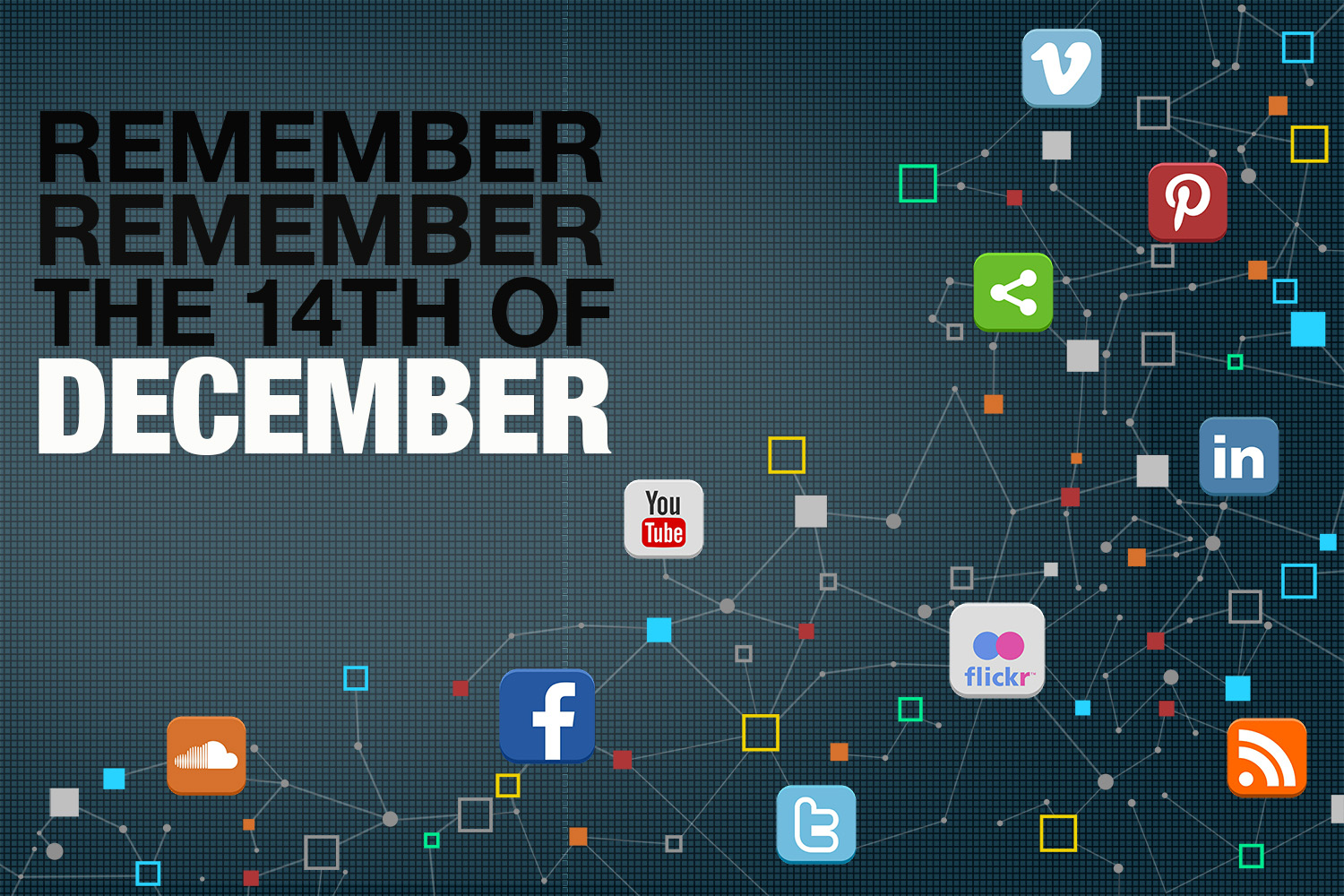
Graphic by Langley Leverett
The truth about Net Neutrality
Controversial policy is commonly misunderstood
The internet is undoubtedly one of the most revolutionizing technologies in all of human history. It has remained unregulated from 1990 to 2015 and grew exponentially as a result. Today, the internet is a primary resource for sharing information, and every time someone opens it, they have unlimited potential to nearly 1,200 petabytes of information. Then came along Net Neutrality.
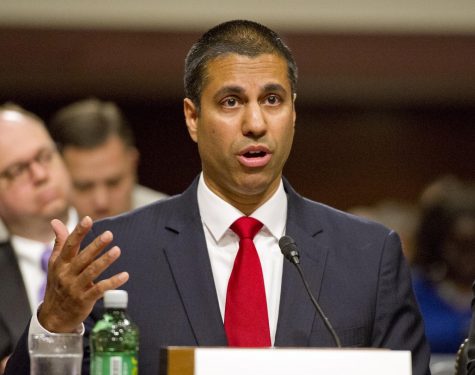
There has been hordes of backlash from the public over the FCC’s proposal to repeal Net Neutrality. Many major technology companies have advocated for a free and open internet. If so much controversy clouds this issue, and most people agree with the concept of Net Neutrality, what does the opposition believe, and what is Net Neutrality?
Net Neutrality was originally a policy that was controlled by the market but soon became an official piece of legislation under the Obama Administration in 2015. It requires Internet Service Providers to treat all data on the Internet the same, and not discriminate or charge differently by user, content, website, platform, application, type of attached equipment, or method of communication.
This may sound to be beneficial to the average person seeking true information or the general consumer, but it is not as black and white. Even with this regulation, major technology companies are working their way through the loopholes. Some proponents of the regulation say that eliminating it would kill the internet and allow for ISP’s to engage in mass censorship and carve the internet into fast and slow lanes. However, major technology companies already censor information and even though the internet is not carved into fast and slow lanes, these companies will always find a way to make more money off of the consumer. To many proponents’ surprise, the elimination of Net Neutrality would help to actually alleviate these problems.
For instance, there is hard evidence that major companies such as Facebook censored certain political advertisements and allowed other political advertisements and misinformation to spread during the 2016 Presidential Election. Despite the fact that there were no government regulations concerning this issue at the time, the point is clear: large technology companies will almost always have control of the information of what is put on the internet.
However, there is a specific reason why many of these technology companies are supporting Net Neutrality: with Net Neutrality in place, consumers are not actively worried about the fears commonly associated with the lack of Net Neutrality, and technology companies can continue their misbehaving practices. Contrary to the general public’s knowledge, government regulations are not in place to restrict technology companies; government regulations are in place to protect these large companies from smaller competition. They are actually commonly written by the companies themselves with their representatives inside the government. This is simple lobbying and is not capitalism at all, and there is no guarantee that Net Neutrality does anything to prevent this.
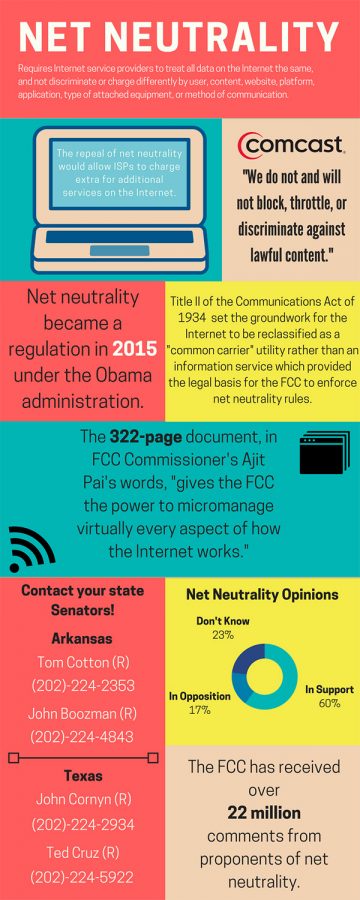
Net Neutrality actually benefits them because if it was repealed, smaller companies would pose a threat to their larger counterparts. Sure, masses of consumers distrust these large telecoms. However, there are more minor parts of these types of regulations that continue to allow these telecoms to survive. If the market was truly free, these large telecoms would eventually cease to exist, and they would be replaced by smaller options that are less expensive and offer a better service.
Now, consider the fast and slow lanes of the internet. Opponents of Net Neutrality believe this argument is truly unrealistic, and net neutrality offers an even more unrealistic solution. Consider the U.S. Postal Service. If Net Neutrality was applied to it the same way it is to the internet, all mail regardless of weight or size would have to ship as slow as a bowling ball in a package. This places a strain on the entire system, and is an equivalent of communism where everyone makes the same wage. Following this rule is difficult too, especially for smaller companies attempting to compete against the large telecoms. If Net Neutrality was repealed however, smaller companies would compete with larger ones and offer better service for a cheaper price.
The idea that one side of the political spectrum is blaming the other for being responsible for killing the internet is completely absurd. No one wants the internet to be handled by large, greedy monopolies, and no one wants it to go away or to be censored. However, the irony is that proponents of Net Neutrality wish to give total control of the Internet to the U.S. government- the largest monopoly in the world.
Opponents claim that government is ineffective at managing anything and everything. Then why would we give control of the internet to the government? Forbes describes it as this: “We’re talking about the same organization that spent an amount equal to Facebook’s first six years of operating costs to build a health care website that doesn’t work, the same organization that can’t keep the country’s bridges from falling down, and the same organization that spends 320 times what private industry spends to send a rocket into space.” Proponents of Net Neutrality do not know that their worst fears about the outcome of the internet and possible censorship are shared by Net Neutrality’s opposition, and they are much more likely to become true under government regulations. No matter what side of the aisle you are on, any government that desires to suppress free speech and criticisms of the government can and will do so if they have the power to, and no one wants that.
Some see the government to be a benevolent organization that protects the weak while in reality it is heavily influenced by lobbyists who use it to their advantage. However, most Americans would trust the free market much more than a tyrannical government allowing the National Security Administration to scrutinize and spy on consumers.The 332-page Net Neutrality legislation, in the FCC Commissioner Ajit Pai’s words, “gives the FCC the power to micromanage virtually every aspect of how the Internet works,” which would be disastrous for all consumers. According to the opposition, the only problem with proponents of Net Neutrality is that they are afraid of the wrong thing.
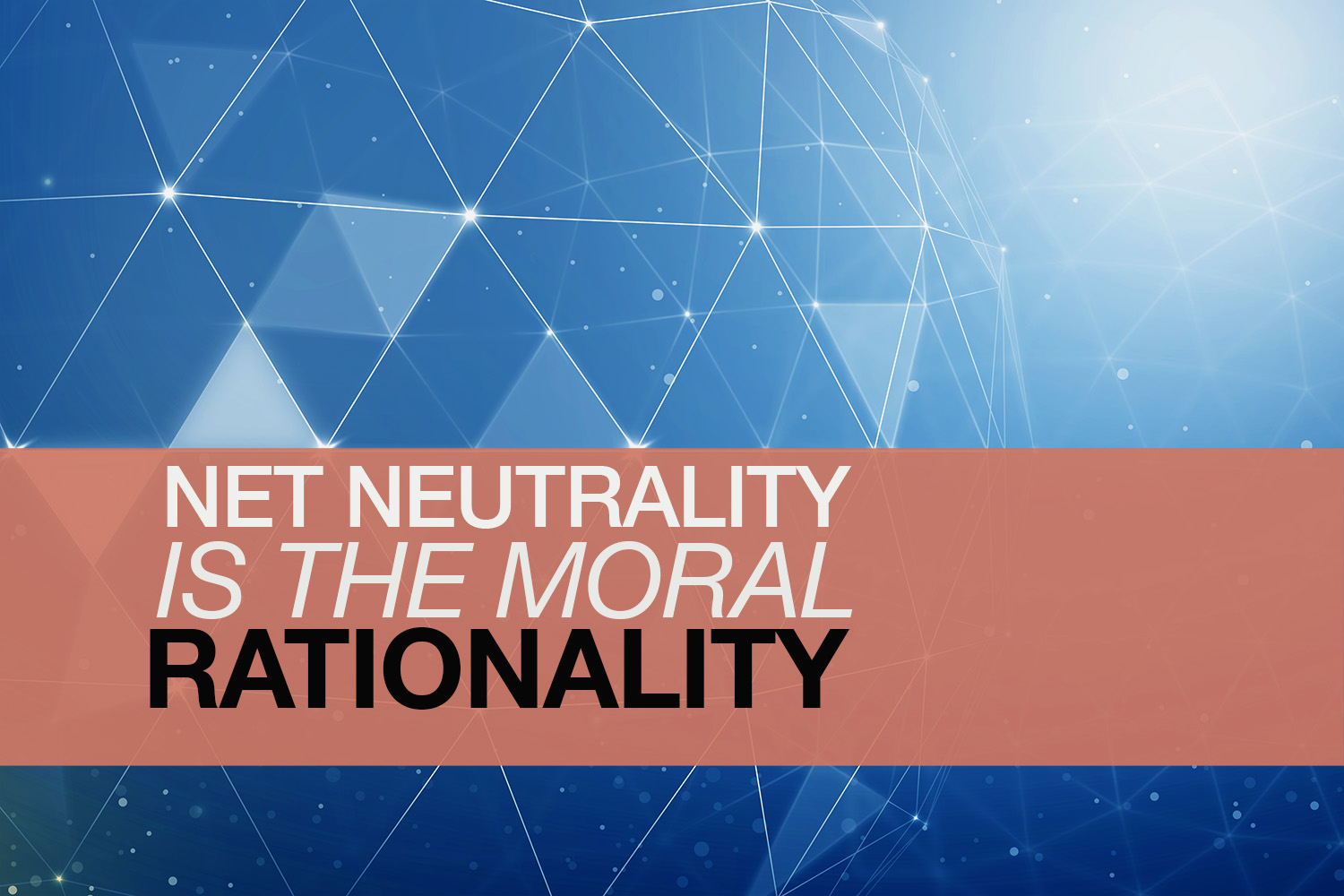
Graphic by Langley Leverett
The war behind the screen
Internet must remain open and free to sustain equality
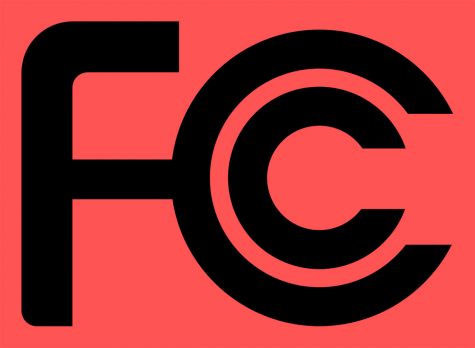
In what is to be the United States’ greatest contemporary battle between consumerism and capitalism, the Federal Communications Commission votes tomorrow on abandoning the provisions of Net Neutrality guaranteed by Title II under the Obama Administration.
Though you may or not find yourself scouring the edges of the internet, on Instagram or Facebook, on Spotify or Soundcloud, your presence here indicates that the internet is important to you. We are facing a reality ascertaining that this website, its articles and its content, that enjoy the privileges and accessibility granted under the premises of free and open internet, may not be here this time next year.
Repealing Net Neutrality opens a wormhole for Internet Service Providers to level monopolies on American internet. The FCC under Obama’s Administration made laws to prevent this aggrandizement of bandwidth speed, opening a long battle for Net Neutrality.
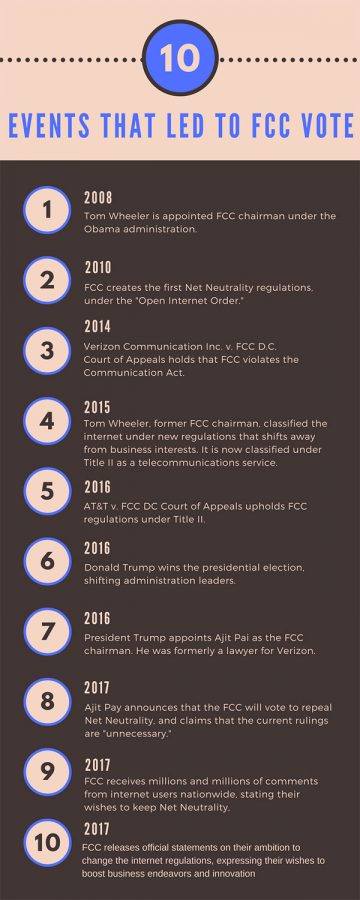
Net Neutrality advocates consider the infrastructure of internet delivery– speed, video streaming and audio streaming– as a utility and not as a commodity, seeking to classify it as a type of common carriage under the 1996 Telecommunications Act, and apply the same rules to the internet that roads, electricity and water abide by.
But old wounds have reopened under the ambition of Republican Ajit Pai, president Trump’s appointment as the head of the FCC. Pai’s proposed legislature threatens to rewrite the fight of a fight that began as early as the fight for free radio. If the legislature is passed by the commission, three Republicans to two Democrats, then ISP’s obtain the power to discriminate bandwidth speed and might force you to pay for it.
Comcast, Verizon and AT&T among others, could slow and halt access to their rival websites and run small, nonprofit businesses into the ground, if they can’t afford to make payments for their bandwidth speed.
The internet existed this way for Americans until AOL revolutionized open internet in the late 1990s. It seems convoluted and a perversion of capitalism, a crude version of survival of the fittest for monopolies to ruin smaller business ventures, but surely we are better than animals.
Students won’t be able to create independent websites for their research projects. Small businesses, clothing lines, Tiger Times, our online newspaper, will face a reality where our online presence is tolled by ISPs with histories of black capitalism.
Most legislation is a type of rule that enables freedom, take for instance the bill of rights, but our legislators also retain the ability to restrict freedom.
Eliminating Net Neutrality and allowing ISPs to set up toll booths on the internet’s highway will not benefit but a few corporate executives who are geared to benefit this more than the consumer. In Portugal, a compartmentalized internet exists as the extant of a internet that never saw their own AOL.
Pai defends his support of ISPs by saying that regulating the internet freezes business models and limits the creative experimentation that small business like AOL experienced in an internet without rules, but ISPs don’t have a track record for playing nice when it comes to broadband; they abuse their power for profiteering.
The FCC is days away from killing the free and open internet. Those of us who use the internet for resistance can't afford to lose this fight. #BreakTheInternet pic.twitter.com/lcC5487lI7
— ACLU (@ACLU) December 12, 2017
You wouldn’t want your burger cooked to 85 degrees if it cut the cooking time in half, so why pay for half for the internet at a cheaper price when you can pay for an open internet at the price you do now? This legislation holds ISPs accountable. And now, Pai crosses the threshold guns blazing, saying that Net Neutrality’s “days are numbered,” attempting to suppress the internet, and it’s users wishes simultaneously.
Internet regulations over Net Neutrality aren’t draining the lake of innovation. The water flows freely and those receiving enjoy it. Those who use the internet benefit from it as a whole. You have the option to go far and wide across it without worrying about your service being altered. But we might be adding more money to the process.
We won’t only be paying for hardware, software and maintenance. We will be tithed for the websites we use, subject to the whims of ISPs who are only looking to make a buck.
And yet the long fight for neutrality won’t be slaughtered complaisantly. Pushback against the FCC is fervent and unrelenting. Protesters have gone out of their way to become nuisances for Pai. Consequently, there are a multitude of options for you to make a difference.
So many people rely on Net Neutrality that we can expect the legislation to be contested, Pai to be scrutinized more fervently than before and to welcome new gladiators to the arena of political debate to unfold.

